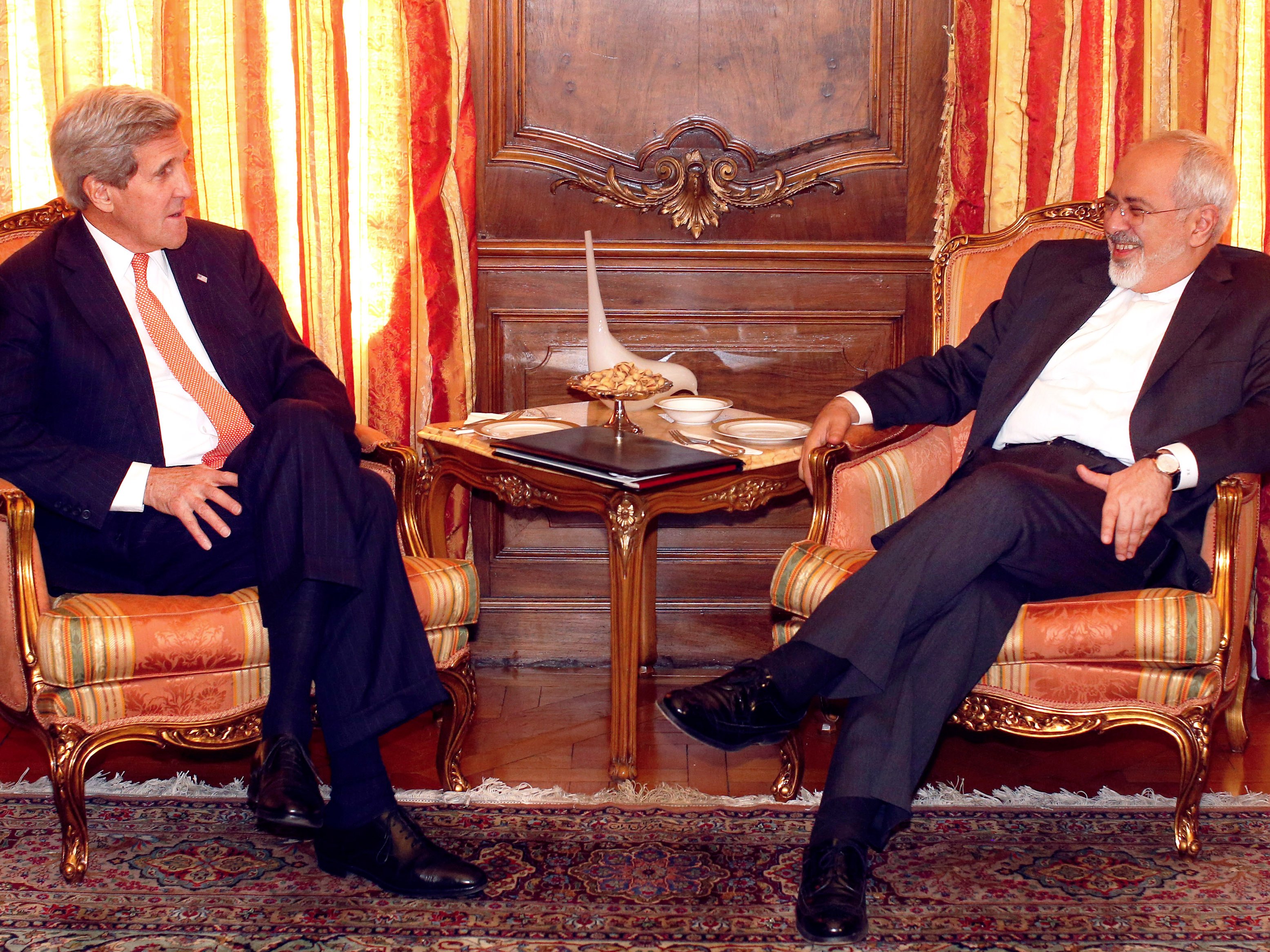
Iran is holding 10 American sailors after two US Navy riverine patrol boats drifted into Iranian waters, and US officials are trying to reassure the public that the sailors are safe and will be released shortly.
The ships were reportedly near Iran’s Farsi Island to refuel. A senior US administration official told CNN’s Jim Sciutto that there’s nothing to indicate anything hostile on the part of Iran. Administration officials also reportedly said that releasing the sailors at night would be "unsafe."
But Iran’s actions seem intentionally provocative to some experts. Jonathan Schanzer, vice president for research at the Foundation for the Defense of Democracies, told Business Insider that it’s another example of Iran "pushing the limits" with the US.
"We continue to see in Iran these pushing the limits when it comes to a whole range of aggressive actions that are not a direct violation to" the landmark Iran nuclear deal between the country and a US-led group of Western powers that limits Iran’s ability to build a nuclear weapon in exchange for sanctions relief, Schanzer said.
"It appears that the Iranians are testing the patience of the US," he added.
Republican presidential front-runner Donald Trump, at an Iowa rally Tuesday night, also lamented what he viewed as Iran’s lack of respect for the US.
"The Iranians like to taunt us because they don’t have like respect for our leaders, right?" he said.
The Obama administration might be eager to "deconflict" with Iran in this situation because of the deal, Schanzer said.
"The Iran deal is really the major victory of the Obama administration over the last seven years, so the last thing you want to do is jeopardize that," he said.
Indeed, judging from the US’ history with non-proliferation agreements, it’s unlikely that Iran’s action would affect the implementation of the nuclear deal.
And Schanzer noted that there is a faction within the Iranian regime that strongly opposed the nuclear deal. US officials have said that part of that faction, the hardline Iran Revolutionary Guard Corps, are holding the US sailors and have confiscated communications equipment from the ships.
"There are those who believe that the deal … was worth it for normalization and sanctions relief," Schanzer said. "And there are the others who believe that the very act of negotiating with the US is a violation of the regime’s principles. It’s possible that what we’re seeing right now is compromise between these two camps. So you enter into this [nuclear] negotiation while continuing to antagonize the US."
 Wikimedia CommonsUS Navy Riverine Patrol Boats, of the kind detained by Iran on Tuesday
Wikimedia CommonsUS Navy Riverine Patrol Boats, of the kind detained by Iran on Tuesday
Iran’s move to detain the American sailors seem provocative, he said, considering that the first course of action wouldn’t usually be seizing the ships.
"The traditional response would be to issue some kind of warning rather than to detain the ship, and now … they’re going to be detaining 10 sailors overnight, which is obviously not insignificant," Schanzer said.
That said, the specific circumstances surrounding the ships’ detainment and their positions in the Persian Gulf are unclear.
A senior administration official told Business Insider that the US "lost contact with two small US naval craft en route from Kuwait to Bahrain." Sources told NBC News that the ships apparently experienced mechanical difficulties and drifted into Iranian waters while the American sailors were on a training mission.
The semi-official Fars news agency in Iran said the American ships were "snooping" in Iranian waters.
In any case, the US likely assumed that such provocation from Iran would continue, Schanzer said.
"We wanted to take the nuclear file off of the table," he said. "I don’t think that that holds water. We continue to back down in the face of Iranian aggression and I think we’re emboldening the Iranians as it happens."
Schanzer said the timing of the incident is also suspect.
"We can’t discount that this took place on the eve of the State of the Union. It is without question a black eye for President Obama’s foreign policy," he said.
"To have to tell the nation that our foreign policy is strong while American soldiers are being held against their will in Iran … that is, to say the least, not an ideal setting for the State Of The Union."



